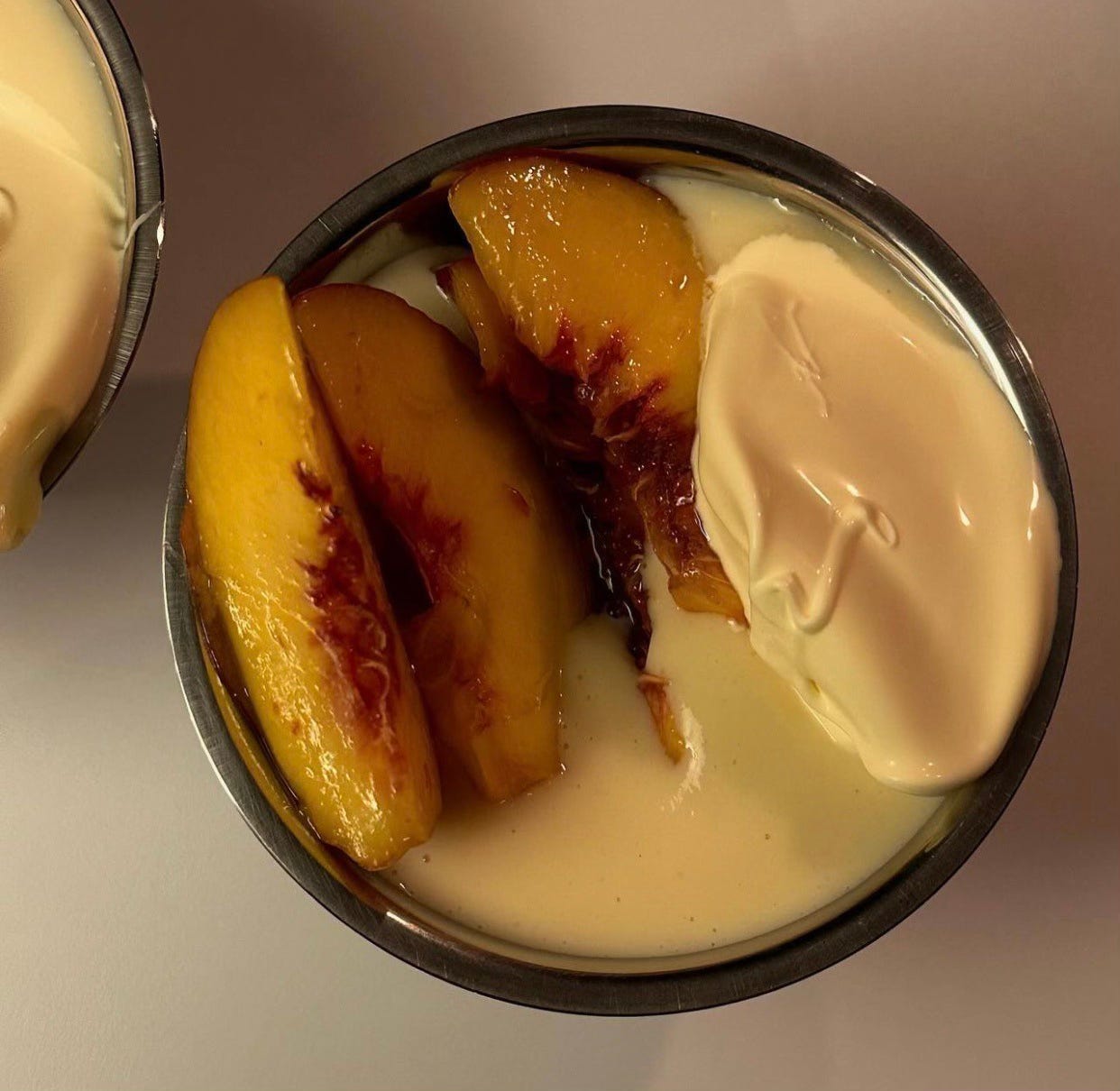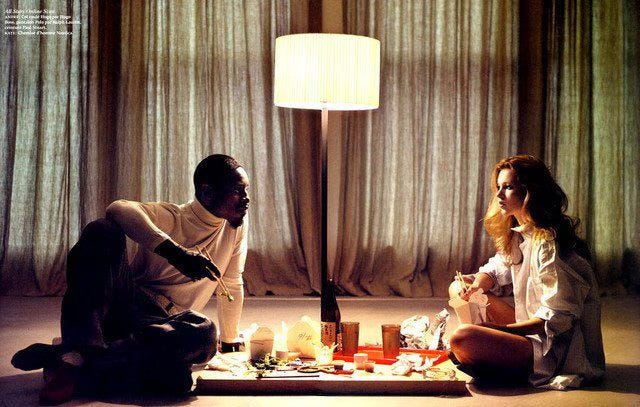( A note: I want to say a huge thank you to who was one of the largest reasons I woke up one day and decided to write what I wanted. You mean the world to me. )
i realize i don’t know how to be sad anymore. at least not properly.
Last night I reached the halfway point of my novel. It was late and my mother had gone to bed, but I didn’t realize till I exited my older sister’s bedroom to get a snack as a reward. The Virgin Mary candle I’d bought last week was blown out and silenced, my bathroom gone dark.
While I languished in my kitchen, the chocolate silhouette of an Oreo melting in my mouth, I realized I wouldn’t have reached halfway if I hadn’t changed the characterization of my heroine.
Initially, she was as sad as the rest of them. I thought maybe the creation of a new sad girl novel would help it sell. Now, I realize it might’ve but I would’ve hated her and the whole thing altogether.
My heroine transformed into someone unapologetically neurotic ( in a way that’s smaller than I am ) and complex though she toes the line between sad and angry. She’s often disconnected from the world around her, drifting into sleep when she’s too bored to bother. If analyzed, I think psychologists would say that she uses sex as a weapon. Not to hurt her love interest, but to remain aloof and mitigate the amount of heartbreak she may feel.
Over and over, I tried to make her more depressed than before. I gave her an eating disorder inspired by my own fractured relationship with food. Still, even though I knew the feeling acutely, I could never properly structure a scene around it. That changed into dealing with her recovery. The sadness evaporated and in its stead was a pale imitation of tragedy, underlying the way she exists in the world but not defining it.
I imply that she had a pill problem, sleeping away her life when she got overwhelmed. That changed too. It became less of a problem, an addiction, and more something that happened to her in university that she chose to step away from. Another underline. She keeps pill boxes in her home but they’re empty. She wants to feel it now.
Even the “sad boy” didn’t work for my hero. ‘submissive ≠ sad’ was one of the notes on my WIP plan. I wanted to explore this through the lens of their sexual dynamic, and truly dig my fingers into it. I refused to leave it at writing about him whimpering once.
He’s tender with the heroine but distant in general. I hate the “asshole to everyone but you” trope so I refrained, making him jaded from his experience with the wealthy world around him. He can be read as pathetic or manipulative.
Everything they do is conducted in a manner that signifies that they may be out of touch but hey: they love each other. I love them both. I’m excited to see how the world perceives the mess of them together.
Still, the initial setup just wasn’t working. And here’s the thing: I think it’s because I’m no longer interested in reading about it. I say think because I will never truly be over it. Something is soothing about realizing other people are just as sensitive and tired as you are, about seeing others’ lives begin to slow because of the weight of their emotions. There’s a catharsis in the relief that comes with understanding you are not as alone as you’ve been thinking.
However, the long dissertations on how sad and miserable you are are beginning to drag now. Its romanticization has begun to chafe.
On a personal level, it’s been fueled by my constant need for (structured and slow) change. I can’t stay like this forever, I chant. It’s the mantra that got me out of my horrific small town and into a larger part of my life.
Just the other day, I took another look at my vision board and was pleasantly surprised by how much I’d achieved. I’d gotten a lot of what I wanted. I could’ve left it alone, but now I’ve re-adjusted it to make room for more. It’s like that.
Though doctors have vindicated me in my campaign for people to recognize that summertime sadness is not in fact just one of my favorite Lana songs in a recent article, I’m also wary of how being a sad girl in the summer has become purposefully having a “Sad Girl Summer”. There are even written guides, like the gift-giving ones I save for future Secret Santa participation.
It’s made me think of all the summers I’ve spent secluded in my room. Martha Gellhorn says it best:
“I wait every year for summer, and it is usually good, but it is never as good as that summer I am always waiting for.”
It’s made me think of how this summer has already been different because I’ve abated the familiar descent of my depression with my desire to live. My camera roll is a kaleidoscope of green, pink, and blue and my phone is straining under the storage (my gallery consists of more than 10,000 images).
It’s not that my own sadness is smaller but more that I’ve found a way to be kind to it, so it no longer becomes all of me but only some of me. I still hug her, and let her hair get caught on my glossed lips, but I make her sit in her own chair instead of on top of me.
I don’t want to make a habit of basing my work only in grief because eventually, I will burn out and no longer remember how to write outside of that.
So, I take action through creation. It’s the antidote to my despair. As a result, I took a hard left with my characters.
They’re both black, and the more I think about it the more I’m sure this face of their identity has fueled my disengagement from Sad Literature.

Too much of black media is rooted in trauma. It feels inescapable, to the point where I take almost anything else that comes out that differentiates from the norm even if it’s not particularly good.
I was determined to step away from that when I began writing. I wanted a romance novel as light as everyone else was allowed to get, without the typical tragedy that is expected of us—both as a diaspora and as black women.
I wanted to write something syrupy without being too sweet, but still sweet nonetheless. The whole point of the genre is that they end up together. I just didn’t want them to fight against anything to do so.
I’d like to think that what sets this work apart from others is that the climax is not their getting together. It’s them staying together. They get married young and I explore how that unbalances their relationship as they age and how confronting that (as well as the way they’ve changed) results in them staying together, still full of enough love to make you sick.
One could still argue that my heroine is objectively sad. She falls victim to bouts of unexplained sadness in several chapters, but she never remains there. She too creates to combat it.
And that’s not to say that sad women or sad people, in general, make no effort to be anything other than sad. It’s more that the romanticization of staying sad has begun to overshadow the delicious nature of living with it, living over it, living despite it, etc. I want us to realize that our sorrow doesn’t need to be a permanent performance or persona.
It’s okay if you’re tired of the way tragedy makes you feel. You’re not doing anything wrong by figuring out who are besides your emotional state. I think it can feel like that sometimes. It certainly has for me.
Now, I’m on my second cup of coffee waiting for a friend to arrive in thirty minutes. I’m scouring CouCou Intimates for something to buy, muttering about how underwear should not be this expensive. Lust for Life has been on repeat since the evening before.
I’ve also unsubscribed from publications I used to read religiously.
I just no longer like the way they make me feel. I hope someone comes to replace my spot as a reader so that they can gain support and maybe write for a living. That doesn’t change that I no longer fit with it because I can feel two things at once, maybe even more.
If I don’t work to become aware of it, my worth will be inherent to the strength of my tragedy.
It’s like who am I if not devastated?
I’m determined not to care.
( Another note: thank you to , , , and for inspiring me to write this. you are all such wonderful people. )






I think we spend so much time trying to understand ourselves, and revelation is so hard-won it can be easy to forget not to let it narrow our focus, to become habitual in our creative approaches as a result. And when those revelations have been co-opted into an aesthetic by the larger culture, it's confusing--we all want to be part of something. It's so powerful that you've chosen to push against these definitions to go farther into your craft and storytelling, to create art that will connect to its readers and make them reconsider their same definitions, and that you've shared that here.
And I would say all this even without that INCREDIBLY generous opening note. Thank you. I am so happy to know you're out here writing what you want.
"Still, the initial setup just wasn’t working. And here’s the thing: I think it’s because I’m no longer interested in reading about it."
I LOVE this so much--I'm fascinated by how our creative work changes amidst our own personal growth and developments in taste. I also am a firm believer that we cannot be writing something that we wouldn't want to read! Writing the *exact* book I personally want to read, the book that doesn't exist yet because it could only be written by me, is the main thing that keeps me chugging away at my manuscript. That shit takes endurance, and I can't endure unless I really love the work like that. I think it's amazing that you paused to reflect on how to shift your novel in a way that reflects what is emotionally resonant to you right now. I totally agree, it sounds like that heroine characterization change kept the spark alive.
Love this piece and loved hearing about the emotional reflections involved in your creative process. Knowing that I helped inspire it is truly so meaningful. Sending you lots of love and lotssss more creative flow! <3